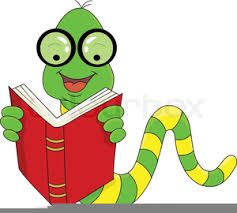Emma by Jane Austen
Maigret A L'École by Georges Simenon
Pride and Prejudice by Jane Austen - ★★★
Three stars feels a little bit inadequate for this book, because while I wouldn't say I loved the experience of reading it I did find if fascinating. The book is--and I suppose this is natural for a comedy of manners--a dialectical examination of gender among the British aristocracy in the Regency era. In that way despite its reputation as the romance novel par excellence it maybe has more in common generically with Plato's Symposium
The novel begins with its famous ironic line about all single men with a good fortune being in want of a wife. What this references, and what the whole novel is built around but which nobody is willing to say explicitly, is that the society in which Pride and Prejudice takes place is one in which women are utterly economically and socially subservient to men and can only hope to achieve happiness (i.e. maintenance of social class and living standards) by marrying men who they can economically subsist on.
Austen is famous as a pioneer of "free indirect discoure," a mode of writing in which the voice of the third-person narrator blends with the subjective thoughts of a character within the novel. Through this Austen is able to carefully control which of the characters' interiorities we are privy to. Lizzy, the protagonist, is the person with whose thoughts we are the most intimate, but we get glances into the psyches of Mrs Bennet as well, who is completely obsessed with marrying off her daughters--often so desperately that she actually undercuts her own efforts.
However it is Lizzy's perspective that is the most interesting. Lizzy is the morally pure hero of the story, possessing a number of idealized traits (wit, loyalty, propriety, independence, modesty, and a degree of playful flippancy an independence).
However, in the aspect of the story that seems the most bizarre to the contemporary reader, Lizzy's attitudes towards her sister Lydia are at first quite perplexing. Lydia, the youngest and most frivolous of the sisters Bennet, spends a week living in sin with Wickham, the closest thing the novel has to an antagonist, before he is financially coerced into marrying her. This is presented in the book as a family tragedy that shakes the Bennet household to its core.
Yet what reads as inescapably odd about this section of the book is the fact that none of the Bennets have any empathy for Lydia whatsoever. Indeed, the overall sentiment is something like "how could she do this to us?"
However, Lydia's elopement does not just effect her; it dramatically tanks her sisters' chances of being able to marry well in their own turns, as one of their "close connections" is a thoroughly bad egg.
This is also the point at which the book is at its most dialectical, because for quite a long portion the book is just different people giving their opinions about Lydia. Jane assumes that Wickham must be honorable and intends to marry her; Mr. Collins says that it would be better if Lydia had died; Mary says that women can never trust men, because if women make a single misstep they're bound to slide into ruination forever; Mr. Bennet admits that he was a terrible father in not discouraging the girls from flirting with officers; Mrs. Bennet is taken ill from grief; and finally we learn that the heroic Mr. Darcy has swooped in and agreed to pay Wickham a large amount of money if he'll make an honest woman of Lydia, thus saving the Bennet girls from perpetual shame and downward social mobility.
The obverse of this is Charlotte, who marries the odious Mr. Collins because even though he sucks he's done well for himself, and Charlotte can arrange for him to be in her life as little as possible, which Lizzy is disappointed by. Lizzy of course is able to square the circle by marrying someone rich who she is also in love with.
As far as my enjoyment of Pride and Prejudice, Austen is certainly a uniquely keen social observer with a keen ear for dialogue--easily the strongest aspect of the book. Indeed, Pride and Prejudice is a social book to the exclusion of almost every other aspect--Austen keeps a vice grip on the prose so it practically never strays from what characters think of other characters and the relationships thereof.
Also I kind of thought it was crazy that a whole war happens in this book and nobody really mentions it or cares!
Finished reading April 30, 2024.
The Count of Monte Cristo by Alexandre Dumas - ★★★★★
Absolutely fever-pitch melodrama from start to finish, meticulously crafted and great fun to read. I was especially struck by how many strands and narrative perspectives the book successfully juggled without it feeling cumbersome. It’s absolutely steeped in 19th century imperialism and a fascination with the Exotic Orient (starting in Greece, or maybe even Italy) and raises some questions about slavery it steadfastly refuses to answer. But absolutely one of the most purely entertaining books I’ve ever read, and a fascinating text of 19th century France.
Finished reading April 8, 2024.
The Bee Sting by Paul Murray - ★★★★★
Jesus Christ. A tour de force - palimpsestic, intricate, funny, devastating. How four people can share a household and not even begin to understand each other a little bit.
Finished reading sometime in March 2024.

